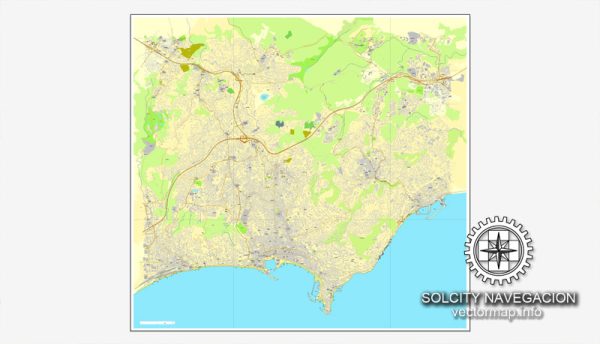The history of urban development in Cannes, France, is a fascinating journey that spans centuries. Cannes, located on the French Riviera in the Alpes-Maritimes department in southeastern France, has a rich history that has shaped its modern urban landscape. Here is a brief overview of the key historical periods and developments that have contributed to the city’s urban evolution:
- Ancient Times: The area that is now Cannes has a history dating back to ancient times. The town’s origins can be traced to the Roman Empire when it was known as “Canua.” The Romans established a small settlement in the area, but little remains from this period.
- Medieval Period: During the medieval period, Cannes was often a target for various invaders, including Saracens and pirates. The town’s fortifications were strengthened during this time to protect against these threats.
- The Lérins Islands Influence: The nearby Lérins Islands, particularly the Île Saint-Honorat and Île Sainte-Marguerite, played a significant role in the history of Cannes. The monks who inhabited these islands had a considerable impact on the town’s development and culture.
- 19th Century: Cannes began to transform into a modern resort town in the 19th century. The construction of the first railway line in the region in the 1860s made it more accessible to visitors. Prominent figures like Lord Brougham, who popularized the destination, and the development of luxury hotels helped establish Cannes as a fashionable destination for the European elite.
- Belle Époque: During the Belle Époque period, which roughly spans from the late 19th century to the early 20th century, Cannes experienced a construction boom. Grand hotels and luxurious villas were built along the coastline, contributing to the city’s iconic architectural style. The famous Promenade de la Croisette was also created during this era.
- 20th Century: Cannes continued to develop as a glamorous and cosmopolitan destination in the 20th century. The city saw further urban expansion, particularly in the La Bocca district. It also hosted the first Cannes Film Festival in 1946, which cemented its reputation as a global center for the film industry.
- Contemporary Times: Today, Cannes is known for its stunning architecture, including the iconic Palais des Festivals et des Congrès, which hosts the Cannes Film Festival, and a mix of modern and Belle Époque buildings. The city’s urban development has been influenced by its role as a hub for the film, fashion, and tourism industries.
Cannes has successfully blended its historical heritage with modern development, maintaining its allure as a premier destination on the French Riviera. The city’s urban planning and development continue to evolve to meet the needs of both residents and the international community that flocks to Cannes for its festivals, beaches, and cultural experiences.



 Author: Kirill Shrayber, Ph.D. FRGS
Author: Kirill Shrayber, Ph.D. FRGS